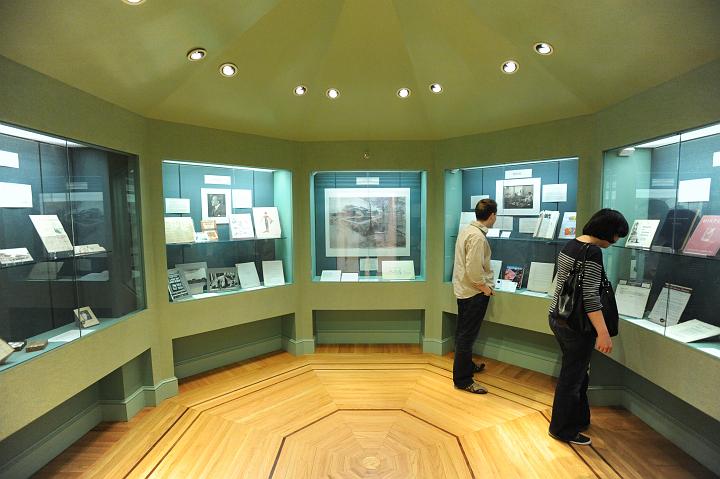Series I: Division of Government Aided Research
- Scope and content:
-
This series consists of correspondence, signed forms, applications, memos, financial statements, lists, and assorted printed matter regarding the government sponsored research programs undertaken by Columbia University and the personnel involved in these research efforts. The majority of the files date from the World War II era but the collection extends into the post-war period, to the mid 1950s. Although the war may have been over, the work begun during the wartime period quickly adapted itself to the post-war needs of the country, hence its inclusion in this collection. Originally called the Office of War Research, the name changed after World War II to Division of Government Aided Research. This later designation is the one used to describe this series.
The bulk of the materials in this series deal with personnel issues (e.g., salary, clearance, termination) but also addresses financial matters, requisitions and the occasional report on the projects themselves.
Folders not associated with a sub-series are found at the beginning of this series. These include material from subject files related to scientific research at Columbia as well as at some other institutions, relevant newspaper clippings, reports, and correspondence. Division of Government Aided Research – Correspondence consists of four files containing correspondence related to the activities of the Division of Government Aided Research. Includes correspondence from George B. Pegram (from 1949 and 1950s) regarding amendments to existing contracts and new contracts. Among the contracts discussed are some which deal with the issue of urban land use. Correspondence from 1951-1952 is from one assistant to another who was associated with the Committee on Government Aided Research and deals primarily with personnel issues such as appointments, terminations, and salary reviews. Atomic Energy Research – Letters of Appreciation contains copies of letters sent by Frank Diehl Fackenthal, acting president of the University, on Feb 18, 1946 to the other universities and colleges who provided personnel to work on the Manhattan Project at Columbia University. The letters thank them for their cooperation and present them with a facsimile of a scroll presented to Columbia University by the government for its work on this project. Also includes replies to this letter from some of the institutions. Correspondence is arranged alphabetically by name of institution within the file. Patent Agreements – Faculty (1951-1952) is composed of signed patent agreements by faculty members participating in government aided research in the post-war period, arranged alphabetically by last name of signee in one file folder.
Three folders of materials were added to this series in August 2006. "National Defense Research Committee – Deferment Letters" contains copies of form letters to Dr. George B. Pegram from Frank D. Fackenthal regarding "Form 42A" and letters of recommendation for individuals employed on various research contracts who were attempting to defer military service between July 1943 and July 1944. The form and the letters are not included in this file, only the cover letter to Pegram. "Reserve List Questionnaires" are questionnaires that were provided by the Office of Scientific Research and Development to all the scientific and technical research workers in the 1940s. All the respondents appear to be employees of Columbia University and some of these individuals can also be found among those noted in sub-series I.2, Personnel Clearance. The questionnaire was comprised of 14 questions including full name, age, address, selective service information, present work, academic training, experience, professional expertise, employer's rating as to replacement, civil service status, marital status and dependents, and amount of time spent on OSRD work at that time. The questionnaires are arranged alphabetically by last name of respondent. "Transportation Committee" is a file containing materials related to a small part of the Administrative Board of the Columbia University Special Service Corps dedicated to investigating solutions to the problem of transporting oil and water supplies in a desert campaign. The committee was comprised of Joseph Warren Barker (Dean of the Engineering School), President Nicholas Murray Butler, Frederick Coykendall, Gano Dunn, Frank D. Fackenthal, Charles Spencer, and Professor James T. Shotwell. Oaths of Secrecy and Espionage Act Agreement forms for Barker, Butler, Coykendall and Dunn are in the file along with correspondence concerning the composition and objectives of the committee. There are also two copies of reports. One was a report on meetings with British, Australian and Canadian Legations in Washington, DC from 13 January 1942 and the other is a report entitled "Water and Gasoline Supplies in a Desert Campaign; Plan to economize in the use of Truck Transport."
Contents
Access and use
- Parent restrictions:
- The following boxes are located offsite: Boxes 1-57 and 61-68. You will need to request this material from the Rare Book and Manuscript Library at least three business in advance to use the collection in the Rare Book and Manuscript Library reading room.
- Parent terms of access:
- Reproductions may be made for research purposes. The RBML maintains ownership of the physical material only. Copyright remains with the creator and his/her heirs. The responsibility to secure copyright permission rests with the patron.
- Location of this collection:
-
6th Floor East Butler Library535 West 114th StreetNew York, NY 10027, USA
- Before you visit:
- Researchers interested in viewing materials in the RBML reading room must must book an appointment at least 7 days in advance. To make the most of your visit, be sure to request your desired materials before booking your appointment, as researchers are limited to 5 items per day.
- Contact:
- uarchives@columbia.edu
